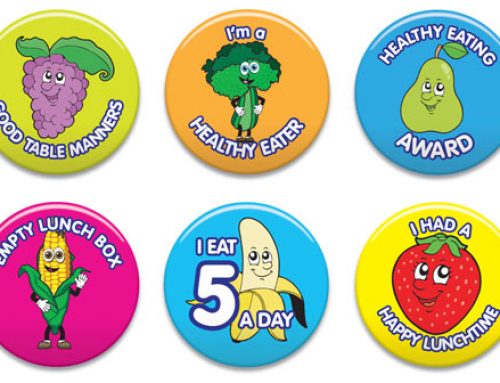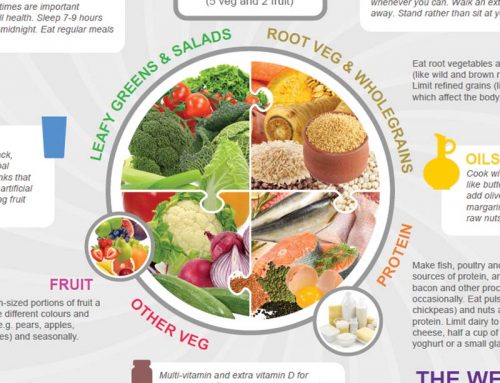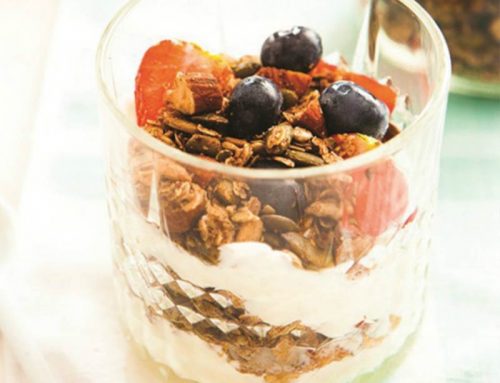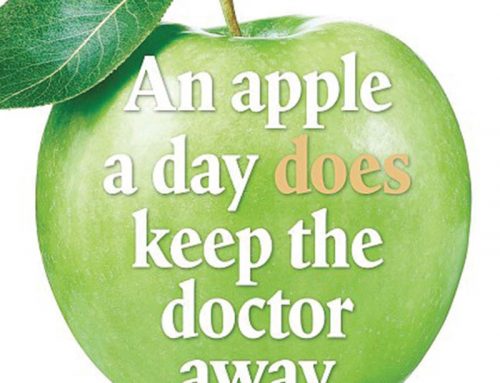Nutrition Tips To Support Mental Health
Along with exercise, quality sleep and stress management, getting the right balance of nutrients into your body is essential for good physical and mental health. Both are completely interlinked so by supporting your physical health you are supporting your mental health and vice versa. Even making small changes to your diet can improve the way you feel.
Eating an overall balanced diet is key, however, certain nutrients are particularly important when it comes to mood balance and supporting your body’s ability to handle anxiety/stress.
Below are some simple diet tips to help support your mental and physical health:
Choose Complex Carbohydrates: I recommend that you include a moderate amount of complex carbohydrates into your daily diet, so things like oats, brown rice, sweet potato, quinoa, beans, lentils and vegetables. This is because Carbohydrate rich foods trigger the release of serotonin, a brain chemical that promotes a feeling of well-being. Low levels of serotonin can lead to low mood, anxiety and poor sleep. 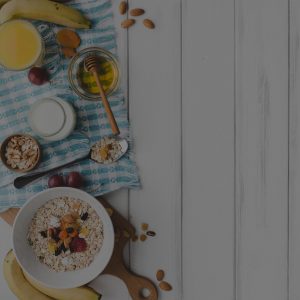
But not all carbohydrates will have the same effect – Simple carbohydrates like sweets, chocolates and white flour foods e.g. white bread, scones etc. will likely give you a quick serotonin boost but the good feeling won’t last long. Eating too many sugary & white flour foods can cause blood sugar highs and lows which can lead to dips in energy and mood and keep you trapped in a cycle of wanting more and more.
When we feel low, it’s tempting to reach for these types of foods but they will only make you feel better in the moment and eating too many of them will ultimately have a negative effect on your health. Complex carbohydrates on the other hand will help to support blood sugar balance and serotonin availability which will have a longer lasting positive effect on your energy and mood.
Ensure Adequate Protein Intake – Another simple but important element is to include a portion of protein at meal times (e.g. eggs, chicken, fish, beans, nuts) Protein contains the amino acid tryptophan which is the building block for serotonin production. It also helps to keep blood sugar levels stable. So essentially it helps to keep you full and satisfied, give you lasting energy and supports serotonin production.
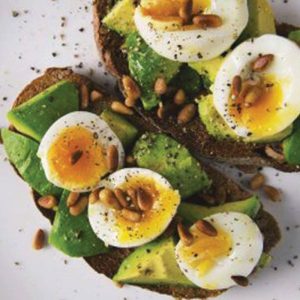
Pairing protein and complex carbohydrates together has a positive effect on mood and energy e.g. egg with wholegrain toast, oats with milk, fish/chicken with potato & veg, cheese/hummus on a wholegrain cracker, beans on toast, nut butter spread on sliced apple/banana.
Critical vitamins & minerals : In terms of vitamins and minerals, the B complex vitamins and the mineral Magnesium are most essential for mood balance and supporting our bodies ability to handle day to day stress. Our bodies can’t make them so we depend on our daily diet to supply them.
Good food sources: All vegetables are good but green leafy vegetables (spinach, rocket, kale, broccoli) are excellent sources of B vitamins and magnesium. Also, nuts, seeds, beans and lentils.
Remember – Our bodies use up extra B vitamins and Magnesium when we are stressed so we need to replace them through diet and possibly supplementation. Excess sugar depletes magnesium too!
Vitamin D – Getting enough vitamin D can be a challenge in Ireland because we don’t get enough sunlight, and if you’re vitamin D levels are low, you’re more likely to experience low mood. If that’s the case, you may benefit from taking a vitamin D3 supplement especially in the winter months.

I try to walk in nature most days!
Exercise Outdoors – Regular (safe) exposure to daylight is also one of the best ways to top up your vitamin D levels. Try to spend at least 30 minutes outdoors in daylight every day. Doing some exercise outdoors is ideal as both sunlight and exercise help to boost vitamin D and serotonin levels. Also exercise and being in natures reduces stress levels and promotes good sleep. A 30 minute walk outdoors can reap big rewards!
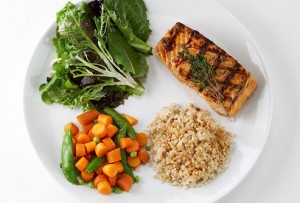
Omega 3 Fatty Acids – Oily fish is also an excellent source of omega 3 fatty acids which nourish our brain and nervous system, so it really is the ultimate good mood food -aim for 2-3 portions a week or consider taking an omega 3 supplement if you don’t eat oily fish. You can get omega 3 supplements which contains vitamin D3.
Limit Stimulants – Last but not least, I recommend limiting your intake of anything that stimulates the nervous system. Overdoing dietary stimulants like caffeine and sugar can cause blood sugar highs and lows which in turn leads to dips in energy and mood. Too much caffeine can also rev up stress hormones like adrenaline and cortisol which can raise anxiety levels making you more prone to anxiety and poor sleep. Limit yourself to no more than 2 cups of caffeinated drinks a day before 2pm.
Key Foods to support mood balance and resistance to stress:
- Oats
- Brown rice, Quinoa
- Root vegetables
- Beans & Lentils
- Green Leafy Vegetables
- Eggs
- Oily Fish
- Nuts & seeds
- Dark chocolate (in moderation!)
- Protein rich food e.g. chicken, turkey, eggs, fish.
Elsa Jones is a Nutritional Therapist and author of Bestselling book ‘Goodbye Sugar’. She offers 1:1 consultations, online Programs and runs regular Nutrition & Weight Management Courses in Dublin.


